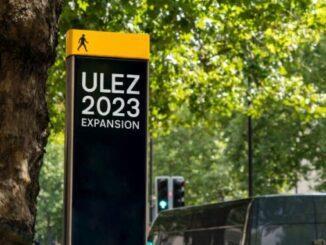
London’s ultra low emission zone (ULEZ) will expand to cover almost all of the area within the Greater London boundary next month, after the High Court ruled it was lawful.
The landmark decision came after the RHA said it was right that politicians “pause and reflect” on how net zero was achieved following claims that Labour lost a by-election because of public objections to the ULEZ.
Four London boroughs and Surrey County Council challenged the expansion plans and took the issue to the High Court, but in a ruling given today (Friday 28 July) judge Mr Justice Swift found that the legal basis on which the mayor made the decision to expand the ULEZ was sound and in line with previous decisions on the ULEZ and the congestion charge.
It means that the ULEZ will be extended as planned on 29 August.
The mayor, Sadiq Khan, said: “The ULEZ has already reduced toxic nitrogen dioxide air pollution by nearly half in central London and a fifth in inner London. The coming expansion will see five million more Londoners being able to breathe cleaner air.
Read more
- ULEZ expansion led to Tory by-election victory, claims Centre for London
- London mayor expands ULEZ scrappage scheme
- Give van operators more time to meet ULEZ requirements, Logistics UK tells TfL
“I've been listening to Londoners throughout the ULEZ rollout, which is why from next week I am expanding the scrappage scheme to nearly a million families who receive child benefit and all small businesses with up to fifty employees.”
After the Uxbridge and South Ruislip by-election went in favour of the Conservatives last week, Labour leader Keir Starmer said the ULEZ was the reason his party lost and that “We all have to reflect on that.”
The RHA agreed, describing the ULEZ and its sister policy of clean air zones as “badly designed policies which have long vexed our industry.”
RHA MD Richard Smith said: “As we turn our attention to achieving net zero, the RHA is calling for greater clarity, collaboration, certainty, and investment amongst the many partners, including government departments, whom we work with.
“Alternative ways also exist to achieve the environmental benefits we all desire. This includes ramping up investment in engine standards and alternative fuels - this has seen pollution levels from lorries fall by over 85% since 2013.”










